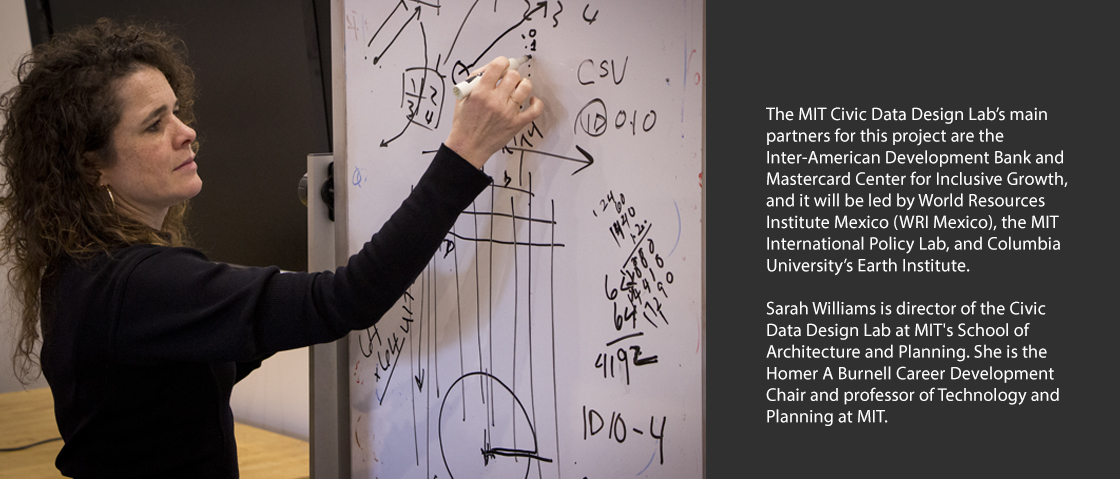Open source resource to help transform transportation is launched through a collaboration between World Resources Institute Mexico (WRI Mexico), Massachusetts Institute for Technology’s Civic Data Design Lab, and Columbia University’s Earth Institute
WASHINGTON, DC February 19, 2019 – A new Resource Center for Digital Urban Transport in Latin America & the Caribbean has been founded, with the support of the Inter-American Development Bank and the Mastercard Center for Inclusive Growth. The Resource Center, which will be run through a collaboration between World Resources Institute Mexico (WRI Mexico), Massachusetts Institute of Technology’s Civic Data Design Lab, and Columbia University’s Earth Institute, will support the development of open digital urban transport data for and with Latin American and Caribbean cities.
For many parts of the world, urban data is scarce. The World Bank estimates that 35% of the world’s largest cities and 92% of the largest low and middle-income cities do not have complete transportation maps. Data-driven insights about passenger journeys also tends to be incomplete or non-existent. This lack of full and accurate information limits the ability of citizens—especially the poor—to navigate cities and access jobs.
Some public transport is deemed “informal,” creating challenges to collecting data— particularly in a manner that protects privacy and in a format that is accessible for civic, social, and government sectors. The new Resource Center will address a critical need for those who strive to improve mobility services for their communities: city transit operators, local governments, nonprofit and civic organizations, start-ups, and researchers.
The Resource Center aims to responsibly spread and scale data-building efforts through an open platform for collaborative learning, offering access to tools and anonymized data, case studies, and co-produced learning materials. The Center will build a strong knowledge network on policy, data, and mobility with a focus on cities that have made the least progress in this field in Latin America and the Caribbean.
Improved public transport and its effective integration into land-use planning are also key to generating access to economic opportunities and services that cities provide. We need public transport systems data to monitor development targets, plan better for integrated public transport and urban development, and ensure transparency, participation, and innovation in the delivery of urban services. Overall, the Resource Center’s efforts contribute to the United Nations Sustainable Development Goal (SDG) 11 to “make cities inclusive, safe, resilient and sustainable” and to target 11.2, which calls for “safe, affordable, accessible, and sustainable transport systems for all.”
The Resource Center for Digital Urban Transport in Latin America & the Caribbean complements other regional efforts such as the Africa-focused DigitalTransport4Africa, funded by the French Development Agency (AFD) and the World Bank.
This new Resource Center will break new ground in improving the collection and application of urban transportation data to add capacity to cities everywhere.
For more information on this initiative, please contact the media contacts below or send an e-mail to transport4latam@mit.edu.
| Media Contacts | |||
| Sarah Williams Associate Professor Massachusetts Institute of Technology Civic Data Design Lab sew@mit.edu |
Patricio Zambrano-Barragán Housing and Urban Development Specialist Inter-American Development Bank pzambrano@iadb.org |
David Escalante Transportation Planning and Operations Manager World Resources Institute Mexico david.escalante@wri.org |
Daniel Hincapie-Salazar Operations Specialist Inter-American Development Bank danielhi@iadb.org |
Mastercard Center for Inclusive Growth
World Resources Institute
World Resources Institute México
Inter-American Development Bank
The Center for Sustainable Urban Development at The Earth Institute at Columbia University
MIT Civic Data Design Lab
MIT International Policy Lab



